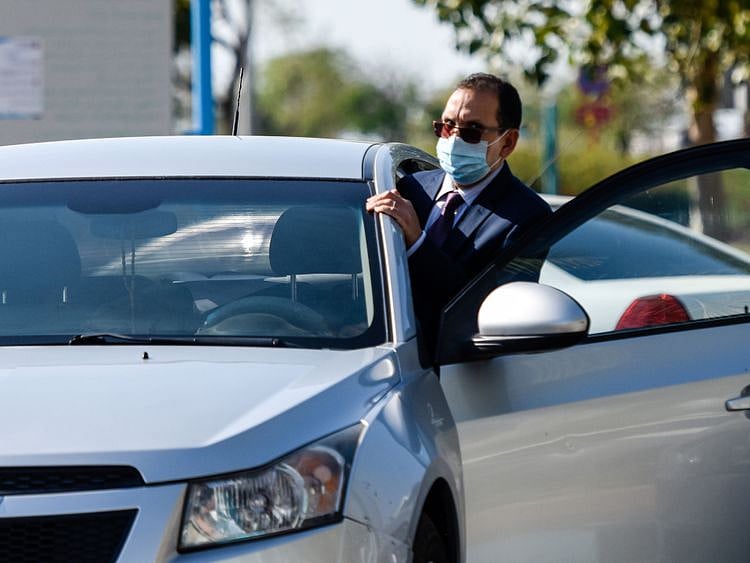Dubai: Ever since the new directive by the UAE government that residents must wear masks and gloves while visiting an indoor community area like a supermarket, grocery or pharmacy, there is sudden an upsurge in demands for masks.
But do we need to wear it while driving?
Residents are wearing it everywhere, while walking the dog, while driving their car to fetch groceries even when alone in the car and the windows are rolled up. So what is the new take on masks?
Dr Sandip Pargi, specialist pulmonologist at Aster Mankhool, hospital explained: “As per the law of the UAE masks have to be worn by residents when stepping out to run an errand and that is why we see so many people wearing masks even in their cars.
“A mask in the car would be necessary if you have a passenger in the back seat and with the windows rolled up there could be a threat of spread if someone sneezed. Honestly, it is not much use when you are driving alone with your windows rolled up. However, if a resident has had other people in the car before driving alone even then the mask could help.”
Who should wear what kind of mask?
Dr Pargi also explained the functionality of the normal surgical mask and the N-95 used by hospital staff.
“There are two things that masks really do,” he explained. “The basic surgical mask should be worn by people who are sick and have cough and cold as it prevents transmission of droplets of moisture and fluids. The N-95 masks which are made of polypropelene are less porous and have a tighter fit around the face thereby protecting people from contracting any virus and are mandatorily worn by health care professionals along with other Personal Protection Equipment (PPE) as they work in closed proximity to sick people including confirmed and suspect COVID-19 patients.”
As per the World Health Organisation and Centre for Disease Control (CDC) guidleines masks need to be worn by only those who are really sick and display symptoms of cough, cold and sore throat or by the hospital staff who are exposed to a high degree of infection. However, even the WHO and CDC are now reassessing these guidelines based on research that particles may stay longer in the air than previously thought.
Wear masks and gloves but do not forget hand hygiene
Dr Pargi added, “It is important we respect the law of the land. The government is taking extra precaution, so I would request people to wear masks and disposable gloves in supermarkets. If a person is carrying the infection, the gloves will prevent it from being transmitted to other surfaces. But after that I would still advise every resident to wash hands for over 20 seconds with soap water and use a hand sanitser when returning home. There is nothing more important than hand hygiene in disease prevention.
“But people who are not sick need not wear masks or if they do wear it they must wear it in combination with practising all other hygiene protocols such as hand sanitising, and keeping a distance of 1 to 1.5 metre from another person in an enclosed space.”
Sign up for the Daily Briefing
Get the latest news and updates straight to your inbox
Network Links
GN StoreDownload our app
© Al Nisr Publishing LLC 2026. All rights reserved.
